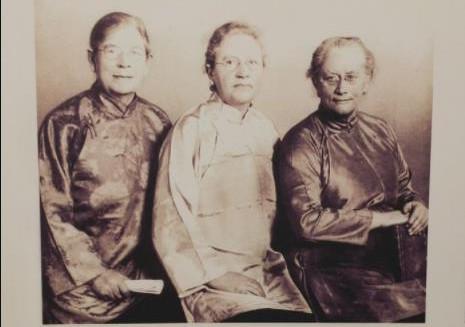A scholar shared the contributions made by foreign women missionaries to Chinese women nearly 200 years ago on International Women's Day.
On March 8th, 2022, a scholar named Li Yi gave an online lecture with the theme of "On the Transformation Path of Chinese Churches from the Perspective of Caring Ministry Made by Foreign Missionaries to China".
Li stated that women missionaries who came to China have made outstanding contributions in the care for women, including opposing foot binding, advocating modern maternity delivery, and resisting feudal bad habits such as infanticide, polygamy, male superiority, and female inferiority. At that time, the vast majority of Chinese women had no education and could not read. It was also these women missionaries who came to China to set up schools and teach the Chinese women.
The lecture talked about the far-reaching contributions made by those women missionaries to Chinese women nearly 200 years ago, and also discussed the inspiration to Chinese churches today.
The following are the main takeaways from the lecture:
Three women missionaries: Alice Mildred Cable, Evangeline French and Francesca French.
You may know the "Cambridge Seven" and "Yale Three" with the China Inland Mission, but have you ever heard of "Women Missionary Three"? They were three female missionaries of the China Inland Mission, namely Alice Mildred Cable, Evangeline French, and Francesca French. In the late Qing Dynasty and the early Republic of China, they went to Huozhou, Shanxi Province, to preach the gospel and run a women's Bible school for 21 years. Later, they were moved to go to more remote places where no one had ever heard of the gospel. The women set out from Huozhou, going through Hexi corridor to Xinjiang to preach. There was a large-scale rebellion in Shaanxi and Gansu Muslim Rebellion in the late Qing Dynasty. Moreover, Xinjiang is a multi-ethnic region, where missionary work is needed to overcome many obstacles such as language, culture, beliefs, and customs. All the three women missionaries were unmarried throughout their lives, devoting themselves to China.
In addition, Alma Dodds (1881-1978) came to Dengzhou, Shandong Province, in 1910 as a women missionary sent by the Presbyterian Church in the United States of America.
In 1912, Alma Dodds came to Tengxian County, Shandong Province, where she stayed for 30 years, unmarried all her life.
The Qing government was very brutal in the prevention and treatment of leprosy. For those who were unfortunately suffering from leprosy, they would be trapped until their death and even buried alive. In 1915, Tengxian County Mission Station recorded the local leprosy situation in this way: "There are so many lepers in Tengxian County, and countless individuals or relatives of lepers ask for help. We must help those who are desperate and helpless with our hearts. In March, there was one leper for every 33 people." As leprosy is highly contagious, once someone was found to have leprosy, they would be rejected by their relatives, isolated from society, and left to fend for themselves.
In 1918, with the support of the Presbyterian Church in the United States of America and the then Tengxian County Chamber of Commerce, she initiated to establish the earliest and largest leprosy hospital in Shandong Province. After the hospital construction was completed, Alma Dodds often took lepers in the wilderness there in person, wiping their wounds (which looked terrible) and using western advanced prevention and treatment methods to treat them. From 1918 to 1951, Tengxian County Leprosy Hospital has successfully treated more than 1,000 lepers. The Hospital had influenced Tengxian County, while she also started the prevention and control of leprosy in the southwest of Shandong and the north of Jiangsu.
In addition, Alma Dodds also opened an orphanage for women in Tengxian County, helping set up the Gospel Hospital. Tengxian County was the hardest hit area where baby girls were abandoned and killed.
By 1935, the orphanage adopted as many as 80 orphan girls, educating them until they grew up, got married or found work. Some of them went to college to receive higher education.
For a long time, Chinese churches have been basically fundamentalist, holding the truth well. However, it also led to the church's lack of care for society and the pursuit of social justice, which led to the church marginalization and almost complete disconnection from society. Many churches and believers had a narrow understanding of the great mission, only attaching importance to the gospel mission but not to the cultural and social mission.
Through the women's caring ministry made by these missionaries in China, we can see its importance. For the church, it is very important to preach the gospel directly to save the soul, but at the same time, many ministries are also indispensable. By serving and caring for people, we can guide social progress, then spread the gospel to more people.
- Translated by Oliver Zuo












